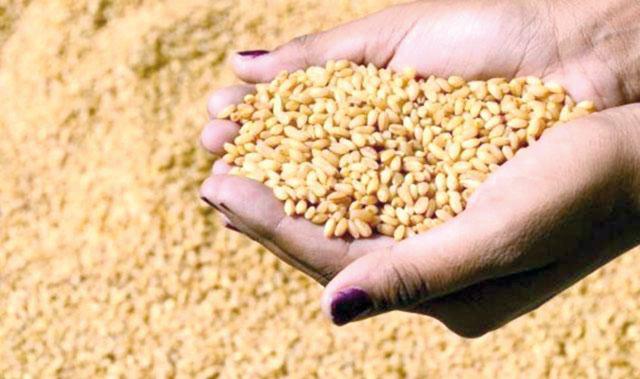You are here
Wheat stock sufficient for more than 19 months — Trade ministry
By Sarah Abu Zaid - Jan 27,2021 - Last updated at Jan 27,2021

Jordan has a large stock of wheat enough for consumption for more than 19 months, according to the Ministry of Industry, Trade and Supply (Photo courtesy of Agriculture Ministry Facebook page)
AMMAN — Jordan has a large stock of wheat enough for consumption for more than 19 months, according to the Ministry of Industry, Trade and Supply.
The current and contracted quantities of wheat in the Kingdom amount to around 1.52 million tonnes and are sufficient for 19 months and eight days with monthly wheat consumption of 80,000 tonnes, the ministry’s spokesperson, Yanal Barmawi, told The Jordan Times on Tuesday.
The wheat quantities are distributed between 981,000 tonnes in the ministry’s warehouses and 601,000 tonnes en route to the Kingdom. The recently established silos have significantly increased the Kingdom’s wheat storage capacity, Barmawi said.
The spokesperson also highlighted that the storage of this “unprecedented” stock of wheat came within the framework of the ministry’s plans to boost Jordan’s food security, especially of this strategic commodity.
Throughout the process, the ministry sets specifications and conditions in accordance with the Jordanian standards and technical criteria to ensure highest quality of the wheat purchased, he noted.
“We already have supplies enough to cover the Kingdom’s consumption for up to 10 months, with the ministry having approximately 605,000 tonnes, including those in the warehouses and the quantities en route,” he said.
In March 2020, His Majesty King Abdullah, accompanied by HRH Crown Prince Hussein, checked on the strategic reserves of basic grains at the Ghabawi silos.
During the visit, His Majesty stressed that securing citizens’ needs of basic commodities is a top priority, noting that the goal is to have strategic stocks that last for more than a year.
The King directed the concerned stakeholders to develop a plan to increase strategic food reserves by enhancing storage capacities and stepping up local production.
Related Articles
AMMAN — His Majesty King Abdullah on Monday called for maintaining strategic food reserves in the Kingdom and ensuring all basic commodities
AMMAN — The storage capacity of Aqaba grain silos will be expanded by 100,000 tonnes, Director General of the Jordan Silos and Supply Genera
AMMAN — The Ministry of Industry, Trade and Supply on Thursday announced that the Islamic Development Bank (IsDB) is granting the ministry a


















